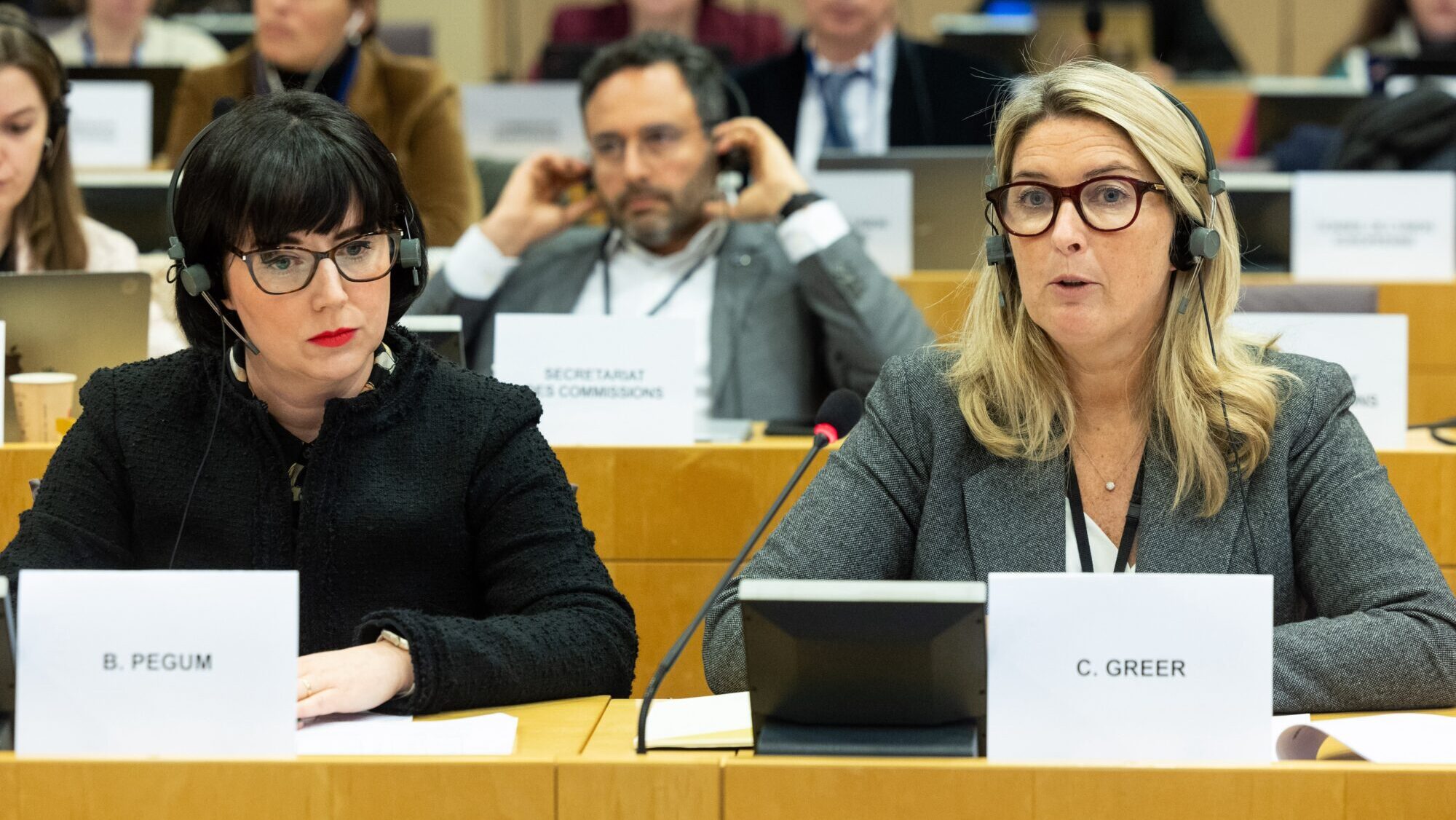
Brie Pegum, TikTok’s Global Head of Product for Authenticity & Transparency (left) and Caroline Greer, TikTok’s top lobbyist in Brussels during a hearing in the European Parliament.
Photo:Alexis Haulot © European Union 2024 – Source: EP
Social media app TikTok identified and removed three separate networks suspected of trying to influence public opinion in last week’s Romanian elections last week. These accounts were, however, small compared to what moderators see globally, the platform’s top representatives in Brussels told members of the European Parliament during a hearing on Tuesday, December 3rd.
The hearing on TikTok compliance with the EU’s social media regulations under the Digital Services Act (DSA) had already been scheduled before the Romanian election cycle kicked off with the first round of the presidential race on November 24th.
International attention shifted to the country after mainstream politicians and media began blaming the shocking victory of a little-known independent right-wing candidate, Călin Georgescu, almost entirely on his TikTok campaign, which was alleged to involve illegal practices and possible help from abroad.
During the hearing, TikTok’s global transparency chief Brie Pegum told MEPs that the platform identified and dismantled two “very, very small networks” launched from Romania on Friday, days after the first round but ahead of the parliamentary election last Sunday.
Pegum said only one of these networks—with 78 accounts and 17,000 followers in total—was created exclusively to boost the electoral chances of Georgescu; while the other, an even smaller network with just 12 accounts, was promoting Mircea Geoană, an independent candidate who formerly served as foreign minister and NATO’s deputy secretary-general, but who didn’t qualify for the second round scheduled for December 8th.
The third interference network TikTok took down on Friday was linked to the Kremlin-backed media outlet Sputnik, but its removal was part of a regular sweep and not necessarily linked to the Romanian elections.
Pegum said Sputnik had been banned on the platform for interference attempts before, but new networks associated with the site regularly pop up all the same. This one had 11 accounts with some 140,000 followers between them.
In addition, in September, the site removed another network of 22 accounts targeting Romanian audiences with “narratives critical of the Romanian government,” TikTok said at the time.
Nonetheless, the executive highlighted that what they’ve seen in relation to Romania is just the tip of a global iceberg. As Pegum explained:
Between September and yesterday, we removed 66,000 fake accounts and many fake followers. There are also fake channels impersonating political figures. We blocked 260,000 spam posts and are constantly striving to prevent disinformation and ensure as authentic behavior as possible.
Caroline Greer, TikTok’s key lobbyist in Brussels, also stressed in Parliament that the company was doing everything to eliminate undisclosed political influence campaigns during the election. She pointed out that TikTok employs 95 Romanian moderators focusing on the elections, more than other similar social media platforms.
The drama surrounding the election led to the Romanian Constitutional Court (CCR) ordering a recount of the first-round votes and only validating the results on Monday night (December 2nd) after no sign of electoral fraud was found.
The second round of the presidential race, therefore, can be organized according to the initial schedule this weekend. Georgescu will face former TV anchor Elena Lasconi of the liberal USR (Renew) who turned her initially progressive party into one of the major center-right political forces in the country and is regarded as the moderate, pro-Europe candidate.
In turn, Georgescu enjoys the support of the nationalist AUR, two smaller hard-right parties, as well as two-thirds of the socialist PSD (S&D) voters and one-third of the center-right National Liberal Party (EPP); and is currently projected to win the two-way race with nearly 58%, compared to Lasconi’s 42%.
